Cocaine is an illegal and highly addictive stimulant that can cause short bursts of energy along with intense feelings of well-being and confidence. Although the drug can quickly boost someone’s attention and mood, it can just as quickly lead to them feeling anxious, unhappy, and fearful.
According to the National Institute on Drug Abuse (NIDA), cocaine can reduce the sensitivity of the brain’s reward system, which can result in someone using the drug more often and in increasingly larger amounts. With repeated use, a person can quickly develop a cocaine addiction.
CenterPointe Hospital offers high-quality inpatient treatment for adults, senior adults, and adolescents who are struggling with cocaine addictions. Through our supportive and empowering addiction treatment services, we strive to help people make positive changes that can allow them to lead healthier lives.
Signs & Symptoms of Cocaine Addiction
Cocaine addiction symptoms can vary depending on the individual and the pattern of cocaine use. Some people might use the drug regularly, while others may engage in occasional episodes of intense cocaine use, known as binges.
Common cocaine addiction signs and symptoms include:
- Irritable mood
- Fear and distrust of others
- Changes in sleep patterns
- Poor self-care
- Loss of interest in regular activities
- Unpredictable or aggressive behavior
- Worsening social and emotional difficulties
- Using more of the drug to get the desired effect
- Withdrawal symptoms
- Money problems
- Failing to meet important responsibilities
- Lack of appetite
A cocaine addiction can cause someone to struggle in many areas of life. However, by accessing care at a qualified treatment place like CenterPointe Hospital, it’s possible to heal from the effects of cocaine use and rebuild a healthier life in recovery.
Cocaine Addiction Statistics
NIDA shares the following statistics on cocaine addiction in the United States:
- In a 2020 survey, about 5.2 million people age 12 and older (1.9%) reported using cocaine in the previous year. Among the same population, 1.3 million people (0.5%) suffered from a cocaine addiction in the previous 12 months.
- In 2020, an estimated 19,447 people died from an overdose that involved cocaine.
- In 2021, an estimated 0.2% of eighth grade students, 0.6% of 10th grade students, and 1.2% of high school seniors reported using cocaine in the previous year.
According to the Diagnostic and Statistical Manual of Mental Disorders, Fifth Edition (DSM-5), rates of cocaine addiction are higher among males (0.4%) compared with females (0.1%). Additionally, cocaine addiction prevalence is highest among adults ages 18-29, at 0.6%.
Possible Effects of Cocaine Addiction
The effects of abusing cocaine can vary based on the method, length, and frequency of cocaine use. Some of the harmful physical, emotional, and social impacts of a cocaine addiction are:
- Risk for heart attack, stroke, and seizures
- Heart damage
- Nasal irritation, congestion, and nosebleeds
- Coughing and breathing difficulties
- Poor judgment and higher risk for illness or injury
- Poor nutrition and weight loss
- Co-occurring mental health disorders
- Social isolation
- Job loss
- Overdose
Although cocaine abuse can affect almost every part of a person’s life, with appropriate treatment, someone who is struggling with a cocaine addiction can improve their physical and mental well-being and work toward a brighter future.
Benefits of Cocaine Addiction Treatment
Suffering from a cocaine addiction can leave you feeling helpless, overwhelmed, and disconnected. And if you are struggling with one or more co-occurring addictions or mental health concerns, the recovery process can feel even more daunting.
The good news is that effective cocaine addiction treatment can help you address the broad set of challenges you may be facing and help you begin a life in recovery.
The following are some of the potential benefits of receiving cocaine addiction treatment:
- You can work on building your confidence, acquiring recovery tools, and making changes that can support your long-term health and well-being.
- You can experience a sense of community as you engage with peers who are also receiving behavioral health treatment.
- You can receive resources and recommendations for services in the community that may benefit your recovery.
According to research shared by NIDA, people are better able to sustain recovery when they use self-help behaviors, commit to abstinence, and believe that they are capable of resisting cocaine use. At CenterPointe Hospital in St. Charles, Missouri, our professionals are committed to helping patients learn strategies that can allow them to enjoy healthier and more satisfying lives.
Therapies Used in Cocaine Addiction Treatment
Everyone’s treatment needs are different, so when you seek care at our inpatient cocaine addiction treatment center, we will begin by conducting a detailed assessment to determine if our treatment place is right for you.
Depending on your specific needs and the presence of any co-occurring disorders, your individualized treatment plan at CenterPointe Hospital can include:
- Medical care
- Medication management services
- On-site detox services
- Group therapy
- Individual and family therapies
- Experiential therapies like music therapy and yoga
- Support for a dual diagnosis
Choosing the Right Cocaine Addiction Treatment Center
CenterPointe Hospital offers a continuum of behavioral healthcare that includes inpatient, residential, and outpatient services across locations in St. Charles and St. Louis, Missouri, and Maryville, Illinois.
We strive to deliver care with compassion and respect for the individuals and families we serve. And we tailor each person’s treatment plan to address their unique needs and goals.
Key features of our cocaine addiction treatment center include:
- Support from a multidisciplinary treatment team
- The opportunity to receive age-appropriate care through one of our adult, senior adult, or adolescent inpatient treatment tracks
- Personalized discharge planning that begins after a patient’s admission to our hospital
- Access to our aftercare support groups
If you or a loved one is struggling with the use of cocaine, we encourage you to contact our admissions team today to discuss your needs and find out how we can help.
This content was written on behalf of and reviewed by the clinical staff at CenterPointe Hospital.






